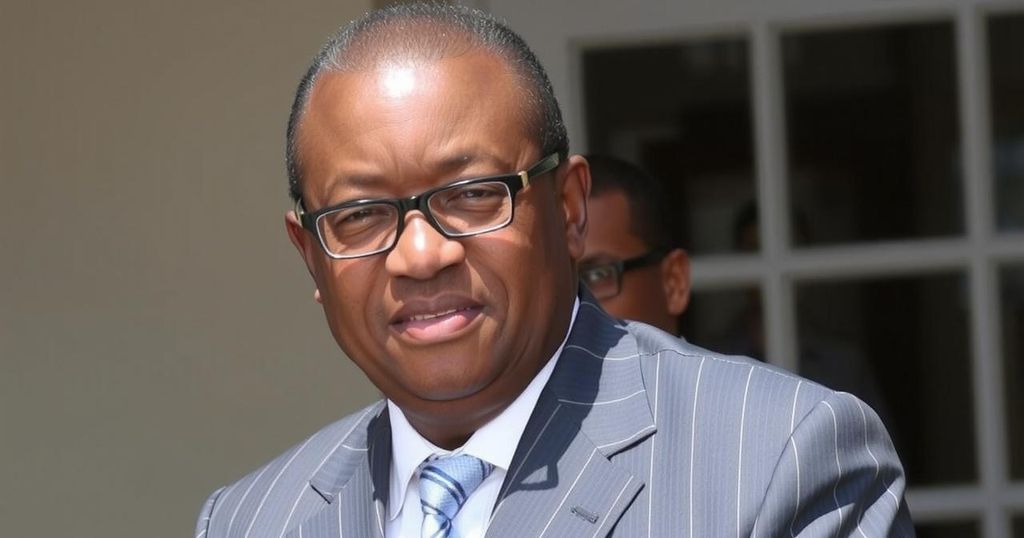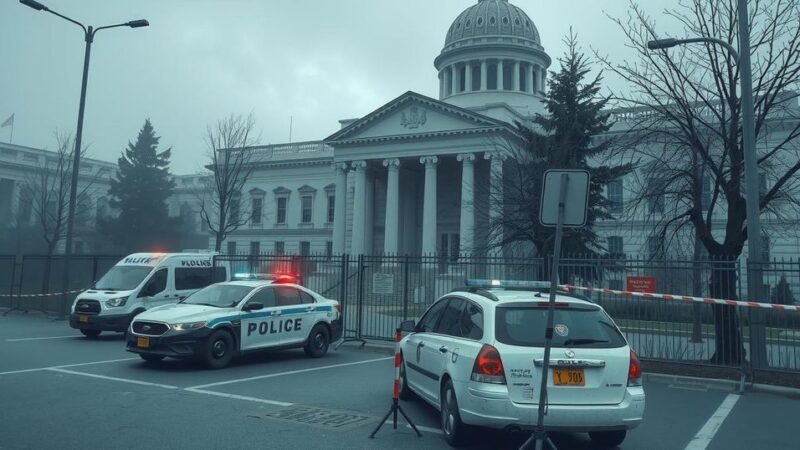Venâncio Mondlane returned to Mozambique after exile, declaring himself president, contesting the recent election results claimed by the ruling Frelimo party. His return coincides with significant political unrest amid economic troubles and violence following alleged electoral fraud. Regional leaders are involved in mediation efforts as the country faces a potential crisis.
Venâncio Mondlane, the opposition leader in Mozambique, boldly returned to his home country after a self-imposed exile, proclaiming himself as the rightful president. His return was marked by a mixed reception, with subdued applause from airport staff and excitement from some supporters. Mondlane has claimed that the recent presidential election, in which the ruling Frelimo party’s Daniel Chapo reportedly won with 65 percent of the vote, was marred by corruption and unfair practices, with independent observers noting numerous irregularities.
This announcement comes at a critical time for Mozambique, a nation burdened by economic challenges including a housing crisis and ongoing insurgency issues exacerbated by the Islamic State. Mondlane’s insistence that he was denied his due victory highlights a deepening political divide, as protests against the government’s actions have escalated, resulting in significant violence and loss of life.
As Mondlane pursues his claims, local and regional leaders, including those from South Africa, are seeking to mediate the political impasse that threatens to hinder trade and further destabilize the already strained economy. Mondlane’s assertive return is certain to reignite tensions as the country prepares for its new presidential inauguration and grapples with broader social and economic crises.
In the backdrop of Mozambique’s political landscape, the recent elections have sparked significant unrest, with opposition parties alleging electoral fraud. Venâncio Mondlane has emerged as a prominent figure challenging the legitimacy of the ruling Frelimo party’s dominance. His allegations of corruption and vote manipulation reflect longstanding grievances surrounding governance and political representation in Mozambique. The country’s socio-economic situation is precarious, further complicated by insurgency threats, making the political atmosphere even more volatile. Moldane’s return is not only a personal claim to power but also signifies potential upheaval in the status quo.
In conclusion, Venâncio Mondlane’s return to Mozambique symbolizes a crucial moment in the country’s political saga, as he stands firm in his assertion that the recent elections were unjust. With Mozambique facing dire economic challenges and political instability, this event could be pivotal in shaping the future of the nation. As tensions rise and dialogues for resolution are pursued, the actions of both Mondlane and the Frelimo party will be closely scrutinized by both national and international observers.
Original Source: www.nytimes.com







